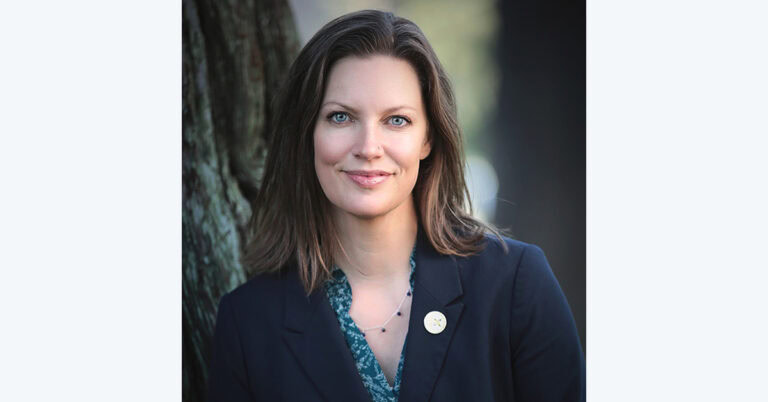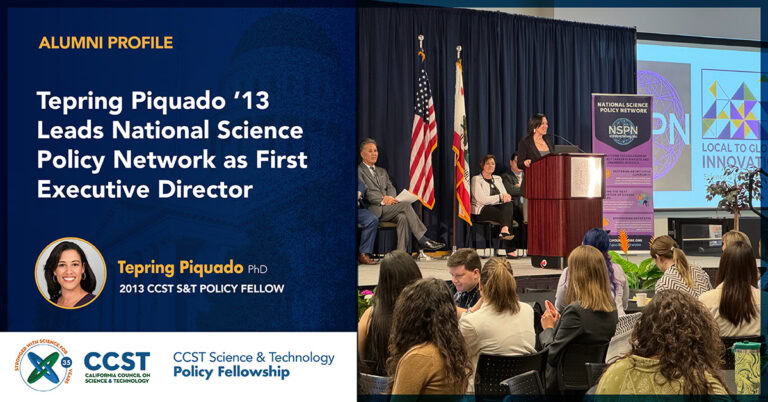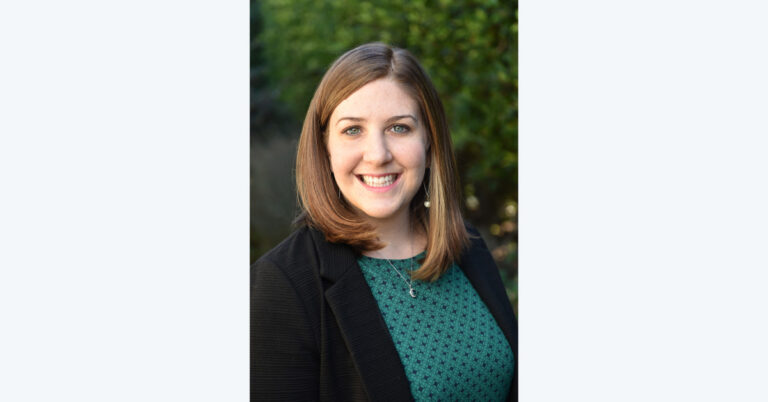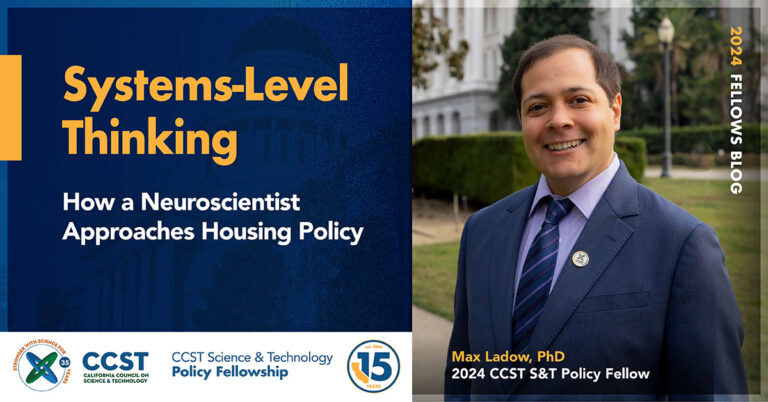CCST’s Brie Lindsey, PhD, Hired as Deputy Director at California Ocean Science Trust
From Oil Spills to Energy Bills: My Path from Science to Policy
April 6, 2021 | CCST Newsroom, CCST S&T Policy Fellows
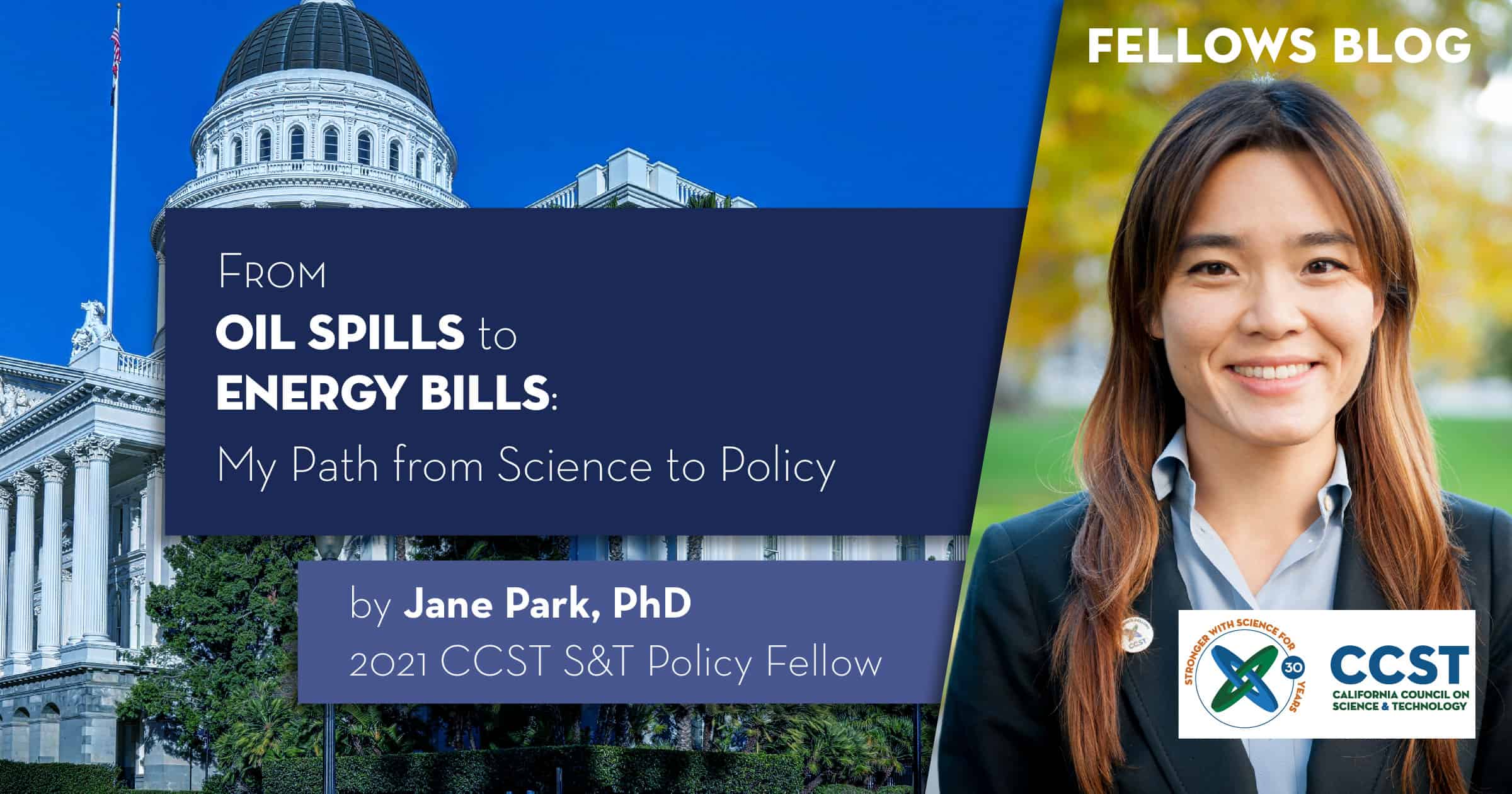
Jane Park is a 2021 CCST Science & Technology Policy Fellow placed with the Assembly Committee on Utilities & Energy. From Northern California, Jane studied multigenerational impacts of crude oil exposure on development in natural fish populations. She earned her PhD in Integrative Genetics and Genomics from UC Davis and a BA in Biological Sciences from Wellesley College.
Can an oil spill today impact fish spawned in the future?
This question motivated my research in graduate school, where I studied the impacts of crude oil on a species of small fish called killifish found in the Gulf of Mexico. Driven to contribute to work that may one day inform environmental and health policy, I loved that my research had direct relevance to ongoing environmental issues like the 2010 Deepwater Horizon Oil Spill.

Using my training in genetics and genomics, I tracked the impacts that oil had on the fish over multiple generations. This required studying biological systems at drastically different scales with a range of complexities, from the smallest scale of studying the molecular machinery that turns genes into proteins, to the underlying and generational histories of fish at a larger, population level.
As my research progressed, and as conversations around the role of science and facts in our nation’s policies grew louder, my lab and I started to think about how we could best communicate our technical research in a relevant way. We brainstormed how we could better serve the public in our academic and personal capacities.
During this brainstorming session, I realized that I had little awareness of the specific mechanisms of how our government operates—how decisions are made and how academic research fits into the larger governing and policymaking process. As I approached the end of my PhD and sought my next opportunity, I wondered how I could apply my research background to policymaking.

In pursuit of answering these questions, I registered for a half-day professional development workshop for scientists on how to engage with California policymakers. It was a Creative Externalities “SciPolComm” workshop taught by Ben Young Landis and 2016 CCST S&T Policy Fellow Alum Gabby Nepomuceno, PhD, offered by the American Chemical Society Sacramento Local Section. As soon as I heard about Gabby’s experience as a Fellow and her career track, I knew I wanted to explore the opportunity to directly engage in the policymaking process in California.

Learning about energy policy, the legislative process, and the interlocking pieces of government overseeing energy in California is a lot like learning about the different scales of biological systems from my research, where technical and fine details connect to form a bigger picture of the broader phenomena.
Fast forward to today and I’m now a CCST S&T Policy Fellow placed in the Assembly Utilities and Energy Committee, working as a committee consultant analyzing bills for our committee hearings. While I felt a little nervous at first getting placed in an unfamiliar issue area, I’ve found that learning about energy policy is a fitting antidote to my years spent thinking about oil spills and fossil fuels. Some of the top issues in our committee are about electric grid reliability while dealing with climate change events, like wildfires and extreme heat waves, and transitioning to clean power in an equitable and cost-effective way.
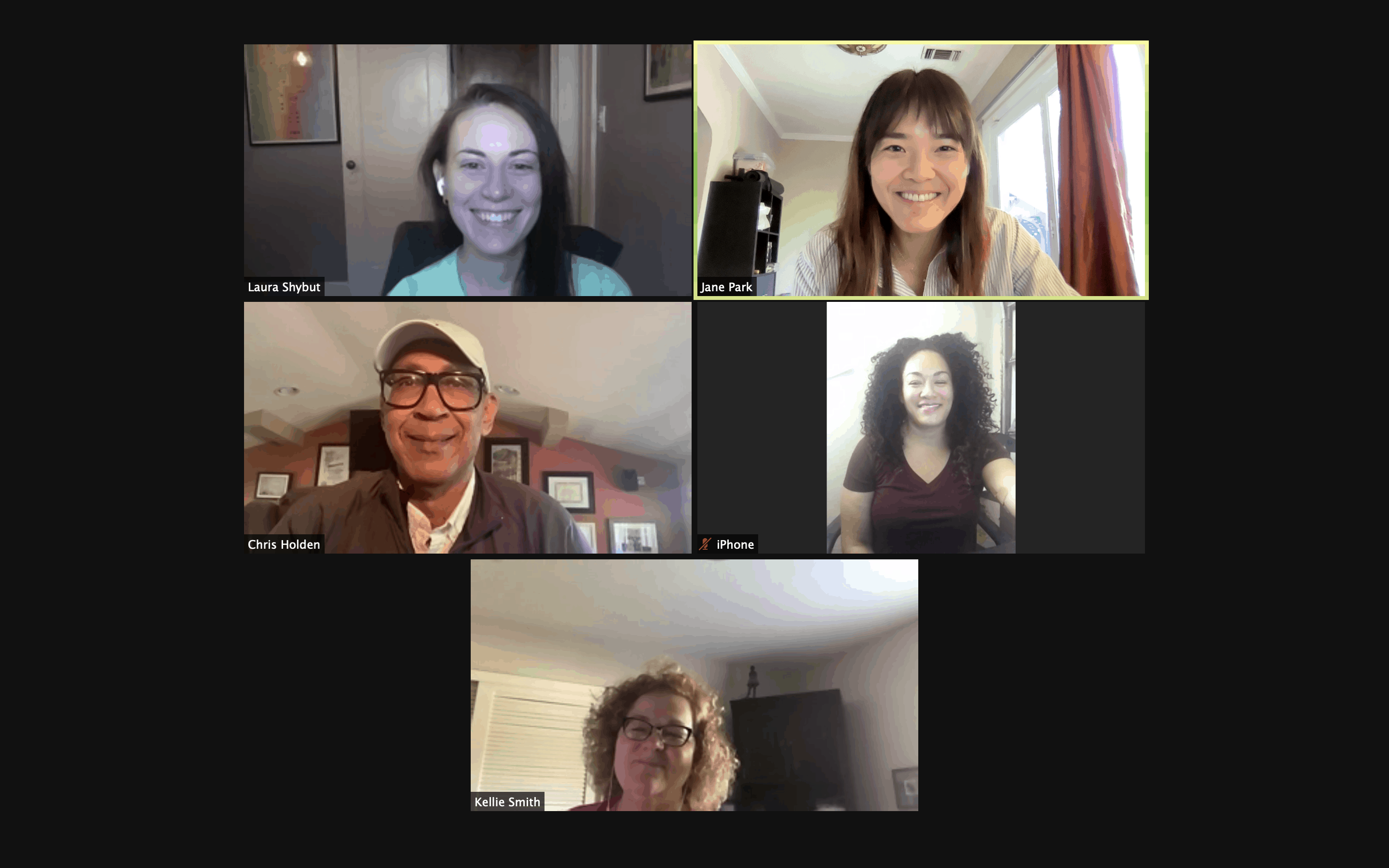
Working in the committee feels surprisingly similar to my time as a grad student. Learning about energy policy, the legislative process, and the interlocking pieces of government overseeing energy in California is a lot like learning about the different scales of biological systems from my research, where technical and fine details connect to form a bigger picture of the broader phenomena. The bill analysis process is also very similar to the research process, in that we gather information about the topic at hand and apply a critical lens to the policy at hand with the available evidence.
It has helped to have a mentor in my office with a shared experience as a fellow, 2017 CCST S&T Policy Fellow Alum Laura Shybut, PhD, and a Committee Chair, Assemblymember Holden, with experience mentoring S&T Policy Fellows. They and the support of the rest of the Committee team have really eased my transition into this new science policy space.
Thinking back to that initial brainstorming session in grad school, I’m excited to feel more empowered and informed about our government and current events. Even through the remote environment, I feel more connected to my community just from having gained more awareness of the policy process—and now taking part in it.
About the CCST Science & Technology Policy Fellowship
The CCST Science & Technology Policy Fellows program trains scientific thinkers to be policy-savvy, while helping equip California’s decision makers with science-savvy staff. The program was established in 2009 with funds from the Gordon and Betty Moore Foundation and other generous friends. Discover how our CCST Science Fellows make a difference in California’s policy arena at ccst.us/ccst-science-fellows-program.

